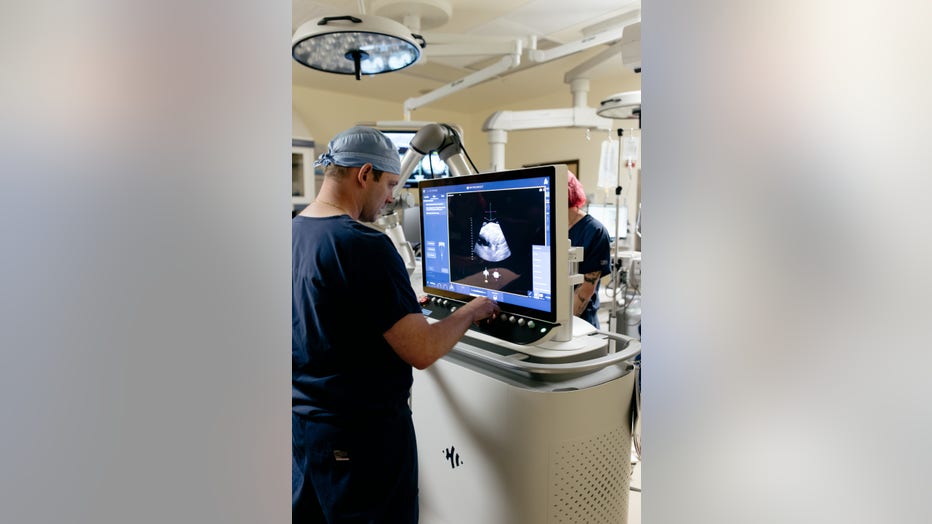Buford man first in Georgia to undergo new liver cancer procedure

Buford man undergos new liver cancer procedure
A Buford man was diagnosed with colon cancer in March 31, 2023. He recently received new treatment available for patients with liver cancer.
BUFORD, Ga. - Jeff Reid says he got the first hint something was wrong in early 2023.
"I started to feel discomfort in my abdomen, and, you know, a loss of appetite," Reid remembers.
His doctor ordered scans, then biopsies.
But as the months passed, his weight went into a sudden free-fall.
"I had lost about 20 or so pounds," Reid says.
On March 31, 2023, Reid, who is now 55, was diagnosed with colon cancer, and told the cancer had metastasized, or spread, to his liver.
He was now stage IV.
"I was shocked," Reid says. "I'm not a smoker. I was in good health. You know, very active, and physically fit."
And, Reid and Stephanie Garcia were just 4 days away from their wedding.
"I just felt like I was on a huge roller coaster where we were so happy, excited about getting married, then found out this news," Garcia says.
They got married on Jekyll Island and then Reid began treatment.

Reid is not a candidate for surgery, so he began intense chemotherapy.
"I was getting heavy chemo, more than the normal person, because I was otherwise healthy," he says.
At the same time, Dr. Nelson Royall, Reid's surgeon at Northeast Georgia Medical Center, was exploring a new option for patients with liver cancer: histotripsy, using sound waves to destroy tumor cells.
"The first time I saw this technology, I almost didn't believe that this was real," Dr. Royall says. "It really came out of left field. And it's incredibly exciting to have as an option."
April 19, with Reid under anesthesia, he became the first Georgia patient to undergo the procedure.
Dr. Royall and his team used intensely-focused ultrasound waves to target and break apart Reid's tumor cells, without damaging his healthy liver tissue.
"And, interestingly, a lot of times it actually preserves the normal liver that used to be where the tumor was," Dr. Royall says. "The tumor is gone and has been reabsorbed by the body. But the bile ducts and the blood vessels have have come back to function."
And, because this procedure is non-invasive, requiring no incisions, Reid has been able to continue his chemotherapy.
"It does not have any side effects, is as far as, you know, things like, neuropathy or hair loss," he says. "There is none of that."
Jeff Reid believes the procedure is helping him, but his cancer is advanced.
"I have numerous tumors in my in my liver," he says. "They're not going to be able to get them all. But, it's also, you know, maybe there's an opportunity for me to have this treatment again."
And Reid and Garcia are grateful he had this option.
"Because it's just one more thing that can help lengthen his life," Garcia says. "It's not a cure. We know it's not a cure. But at least we get more time together.

